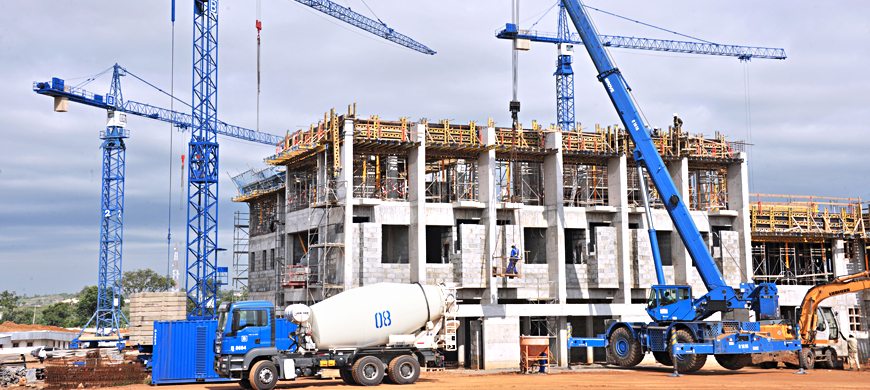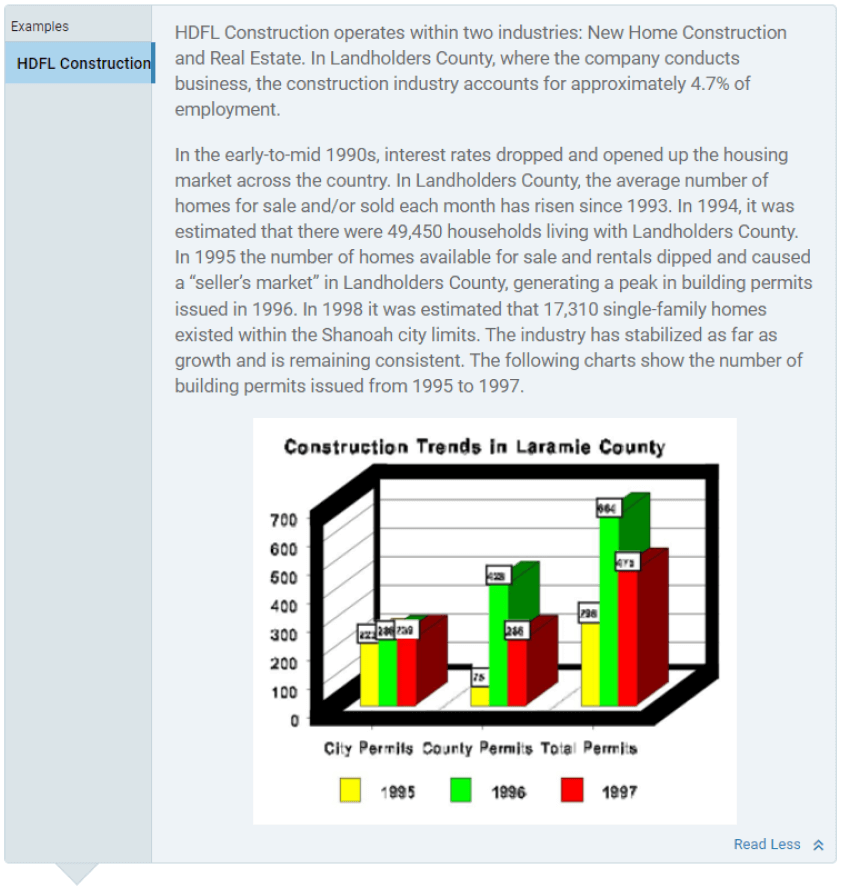
- Business Plans
- Business Ideas
- Business News
- Business Tips
- Testimonials
- Terms And Conditions
- REFUND POLICY
- DELIVERY POLICY
- PRIVACY POLICY
- WHATSAPP SUBSCRIPTION
Select Page

Starting a Construction Company in South Africa – Business Plan (PDF, Word & Excel)
Posted by BizBolts | All Articles , Business Ideas , Business Plans

The construction industry in South Africa is not just robust; it’s a thriving sector that offers a wealth of potential for those willing to take the plunge. South Africa is a nation on the rise, with a increasing need for infrastructure, housing, and commercial spaces. As the government invests heavily in infrastructure development, the private sector thrives, creating a dynamic landscape for construction businesses. With a population of over 60 million and a growing urbanization trend, the demand for construction services is skyrocketing, making it an industry ripe for entrepreneurial ventures. Starting a construction company in South Africa requires a strategic approach and a comprehensive understanding of the market dynamics. While the profit potential is enticing, it’s essential to be well-prepared. Entrepreneurs must conduct thorough market research, assess competition, and identify niche opportunities to differentiate their offerings. This article will outline how to start a construction business in South Africa, and the construction company business plan – PDF, Word and Excel.
Location & Premises
Choosing the right location for your construction company in South Africa is a pivotal decision that can significantly impact your business’s success. Consider establishing your base in a region with a high demand for construction services, such as major urban centers or emerging growth corridors. Proximity to suppliers, clients, and key transportation routes is also essential for logistical efficiency. Furthermore, keep an eye on local regulations and zoning laws that may affect your operations. A well-thought-out location strategy can be the cornerstone of your construction venture’s prosperity in this dynamic market.
Securing suitable premises for your construction company in South Africa is a critical step in laying the groundwork for your success. Depending on your business size and scope, you may need an office for administrative tasks, storage facilities for equipment and materials, and possibly a workshop for fabrication. The right premises should align with your business needs, budget, and long-term growth plans. Additionally, ensure that your chosen location complies with zoning regulations and offers ample space for your operations to expand as your company thrives. A well-chosen premises can enhance efficiency, safety, and overall productivity, setting the stage for a prosperous construction enterprise.
Vehicles, Machinery & Equipment
Having a well-maintained fleet of vehicles is a necessity in the construction business. The choice of vehicles can greatly influence the efficiency and effectiveness of your operations. You may need sturdy pick-up trucks for transporting materials, spacious vans for accommodating site personnel, and heavy-duty machinery transporters for specialized tasks. Prioritize factors such as vehicle reliability, fuel efficiency, and safety features when assembling your fleet. Moreover, consider leveraging your vehicles as mobile marketing tools by branding them with your company logo and contact information, establishing your presence within the local construction market.
Your choice of equipment should align with the type of construction projects you intend to undertake. Consider investing in a diverse range of machinery, including excavators, bulldozers, concrete mixers, and cranes, to cater to a variety of construction needs. Our construction company business plan includes contact details for local suppliers of construction equipment and machinery. Regular maintenance and upkeep of your equipment are essential to ensure safety and prolong their operational lifespan. Additionally, it’s worth noting that, for some specialized machinery, you can opt to hire them as and when necessary, allowing for flexibility and cost-effectiveness in managing your equipment inventory.
When venturing into the construction business in South Africa, it’s vital to define the range of services you intend to offer with precision. The market is diverse, and your success hinges on aligning your services with the needs and demands of your target clientele. You might consider a comprehensive approach, encompassing residential, commercial, and infrastructure projects, or specialize in niche areas like sustainable construction, renovations, or architectural design. To stand out in the competitive landscape, emphasize your unique selling points, such as a commitment to quality workmanship, adherence to timelines, or cost-effectiveness. Additionally, with South Africa’s growing emphasis on eco-friendly construction practices, integrating green building solutions into your service offerings can help you tap into a burgeoning market segment concerned with sustainability and environmental responsibility. Your service portfolio should be a well-thought-out roadmap that not only positions you as a construction expert but also resonates with the diverse construction needs of South Africa.
Furthermore, offering value-added services can set you apart in a crowded marketplace. Consider including project management, consultancy, or maintenance services to enhance the overall client experience and foster long-term relationships. Building a reputation for reliability and going the extra mile to meet client expectations can be your ticket to enduring success in South Africa’s ever-evolving construction industry. Whether you choose to be a generalist or a specialist, the key is to offer services that align with your expertise and the dynamic needs of the South African construction market while staying adaptable to emerging trends and technologies.
South Africa Construction Tenders
In the construction industry of South Africa, securing tenders can drive your business’s growth and sustainability. Successfully navigating the competitive bidding arena requires a multifaceted approach. First and foremost, stay vigilant and proactive in tracking tender opportunities that align with your company’s expertise and capabilities. Government departments, municipalities, and private clients frequently release tender invitations, and staying informed about these opportunities is crucial. Develop a comprehensive strategy for tender submissions, ensuring that your proposals are not only technically sound but also financially competitive. Building strong relationships with clients, suppliers, and industry stakeholders can provide valuable insights and increase your chances of winning tenders. Additionally, continuously improving your tendering process, from documentation to presentation, can give you a significant edge in securing projects and expanding your foothold in the South African construction market.
Staff And Management
In the construction business, your staff is the heartbeat of your enterprise. Assembling a skilled and dedicated team is paramount to your success. From project managers to skilled laborers, each member plays a pivotal role in delivering projects efficiently and upholding your company’s reputation. Some positions like project managers may require full-time employees for consistent project oversight and expertise. Conversely, roles such as general laborers or equipment operators may benefit from hiring part-time workers as when necessary, aligning staffing with fluctuating demands and optimizing cost-efficiency. The salaries for all your staff should be included in the construction business plan.
Invest in ongoing training and development programs to ensure your workforce remains at the forefront of industry trends and safety protocols. Moreover, fostering a positive work culture that values teamwork, commitment to quality, and client satisfaction can be your differentiator in a competitive market. As South Africa’s construction industry continues to evolve, your staff’s expertise and dedication will be the driving force behind your company’s growth and excellence.
There is a huge demand for construction services in South Africa. The nation’s construction landscape is rich and varied, offering opportunities across residential, commercial, and infrastructure sectors. Potential customers include government entities at various levels, such as municipalities and provincial governments, which often release tenders for public infrastructure projects like roads, bridges, and schools. Private property developers seeking partners for housing and commercial developments also represent a significant market segment. Moreover, industrial clients, including manufacturing plants and logistics companies, require specialized construction expertise for their facilities. Additionally, South Africa’s booming tourism industry has spurred demand for hospitality construction, with hotels and resorts seeking construction services to meet the growing influx of tourists. Beyond these, individuals looking to build or renovate their homes are an essential customer base, as they seek reliable and skilled contractors to bring their residential dreams to life. Understanding these diverse customer segments and tailoring your services to their unique needs is key to tapping into South Africa’s expansive construction market.
For instance, a construction company could specialize in residential projects, serving as the go-to contractor for individuals or companies looking to build or renovate homes. Alternatively, they might focus on commercial construction, targeting retail chains, office complexes, and shopping centers seeking expansion or upgrades. Government tenders for infrastructure development, such as roads and public buildings, present opportunities for contractors with expertise in these areas. By identifying and catering to the needs of these diverse potential customers, a construction company can position itself strategically in the South African construction market and unlock its vast growth potential.
PRE-WRITTEN CONSTRUCTION COMPANY BUSINESS PLAN (PDF, WORD AND EXCEL): COMPREHENSIVE VERSION, SHORT FUNDING/BANK LOAN VERSION AND AUTOMATED FINANCIAL STATEMENTS
For an in-depth analysis of the construction business in South Africa, purchase our construction business plan. We decided to introduce the business plans after noting that many South Africans were venturing into the construction business without a full understanding of the industry, market, how to run the business, the risks involved, profitability of the business and the costs involved, leading to a high failure rate of their businesses.
Our business plan will make it easier for you to launch and run a construction company successfully, fully knowing what you are going into, and what’s needed to succeed in the business. It will be easier to plan and budget as the construction company business plan will lay out all the costs involved in setting up and running the construction business. The business plan is designed specifically for the South African market.
USES OF THE CONSTRUCTION BUSINESS PLAN (PDF, WORD AND EXCEL)
The construction company business plan can be used for many purposes including:
- Raising capital from investors/friends/relatives
- Applying for a bank loan
- Start-up guide to launch your construction business
- As a construction project proposal
- Assessing profitability of the construction business
- Finding a business partner
- Assessing the initial start-up costs so that you know how much to save
- Manual for current business owners to help in business and strategy formulation
CONTENTS OF THE CONSTRUCTION COMPANY BUSINESS PLAN (PDF, WORD AND EXCEL)
The business plan includes, but not limited to:
- Market Analysis
- Industry Analysis
- 5 Year Automated Financial Statements [ Income statements, cash flow statements, balance sheets, monthly cash flow projections (3 years monthly cash flow projections, the remaining two years annually),break even analysis, payback period analysis, start-up costs, financial graphs, revenue and expenses, Bank Loan Amortisation]
- Marketing Strategy
- Risk Analysis
- SWOT & PEST Analysis
- Operational Requirements
- Operational Strategy
- Why some South Africans in the construction business fail, so that you can avoid their mistakes
- Ways to raise capital to start your construction business in South Africa
- Directory [Contact Details for South African suppliers of construction machinery & equipment]
The Construction Business Plan package consist of 4 files
- Construction Company Business Plan – PDF file (Comprehensive – 104 pages)
- Construction Company Business Plan – Editable Word File (Comprehensive – 104 pages)
- Construction Company Business Plan Funding Version – Editable Word File (Short version for applying for a loan – 49 pages)
- Construction Company Business Plan Automated Financial Statements – (Editable Excel file)
Testimonial 4
The business plan was very helpful, you did a great job of taking ideas and putting them into words as well as pointing out other aspects of the business plan I wouldn’t have thought of. I got funding using your business plan and it’s now 4 months since I started my poultry business, and everything is going well.
Testimonial 3
The business plan has a highly professional look and feel. The research really helps me look deep into the market that I am targeting, it’s well suited for the South African market. The business plan clearly outlined everything I need to start the business and the costs. It’s now easier to budget and plan. Thank you very much.
Testimonial 1
Many thanks to the BizBolts team for putting together a fantastic business plan, I could not have done this business plan on my own. I managed to get funding from investors to start my butchery business using your business plan.
Testimonial 5
The BizBolts poultry business plan led us down the path from start to finish. Contact details of suppliers of key requirements were included in the business plan. It helped us crystallize our strategy, and the business plan was well received by the bank.
Testimonial 7
Thank you BizBolts for the business plan. I received the business plan immediately after payment, it was money well spent ! I was able to easily edit the business plan. After using the BizBolts business plan, I can wholeheartedly recommend their products and skills.
Testimonial 2
I am extremely pleased with the business plan and financial statements. The business plan is very detailed & it meets my requirements. I feel better equipped with tools that can help me secure funding. I would have no hesitation of recommending your business plans to other people.
Testimonial 6
It is with excitement and pleasure to inform you that I have been successful in securing a loan from my bank. This would not have been possible if not for the BizBolts Business Plan. Thank you for your help, my dreams are now coming true.
GET THE CONSTRUCTION COMPANY BUSINESS PLAN (PDF, WORD AND EXCEL) - R500 Only.
We decided to make the business plan affordable to anyone who would want to start the business, and the price for the pre-written business plan is only 500 Rand.
We have several payment methods which you can use.
Payment Method 1 (Visa card, Mastercard, Credit card, Debit Card)
Click Buy Now below to purchase. After you have purchased, you will instantly see the download link for the business plan package on the screen. We will also email you the download link. Get instant access to the business plan now!

If you want to purchase multiple business plans at once using Visa Card/MasterCard then click here: Business Plans Store
The business plan package is a zipped compressed file containing the PDF, Word and Excel documents. To open the package after downloading it, just right click, and select Extract All. If you have any problems in downloading and opening the files, email us on [email protected] and we will assist you.
Payment Method 2 (Instant EFT - FNB, Absa, Standard Bank, Nedbank, CapitecBank, Investec, TymeBank and African Bank. )

If you want to purchase multiple business plans at once using Instant EFT then click here: Business Plans Store
Other Payment Methods
- Cash deposit into our FNB Company Bank Account
- EFT Transfer to our FNB Company Bank Account
Call/Whatsapp us on +27606334830 for the other payment methods. (Whatsapp us by clicking the link https://wa.me/27606334830 ). Email: [email protected] .

About The Author

BizBolts (Pty) Ltd is a business research company based in Johannesburg, South Africa. We sell prewritten business plans for various industries including livestock production, crop farming and retail businesses. BizBolts also publishes articles on business ideas, business news, business tips, personal finance, and entrepreneur profiles.
Related Posts

Small Business Opportunities in Gauteng
February 9, 2021

Entrepreneurship Opportunities At A Music Concert
February 3, 2021

Franchises Under R500 000 In South Africa
April 30, 2022

Recycling Business Ideas For South Africa
February 26, 2021
Follow Us On Facebook

Subscribe To Our Newsletter
Join our mailing list to receive the latest news and updates from our team.
You have Successfully Subscribed!

How to Start a Construction Company
Updated on 28 October 2022

If you’re an experienced contractor, then starting a construction company can be incredibly exciting. However, there are also many tricky, time-consuming steps required for getting a new construction company off the ground.
Like starting any business, you’ll need a solid business plan, funding, and the right team. In construction, you’ll also need a fairly long list of licenses, permits, and unique requirements. We’ll cover everything you need to know about starting a construction business in the guide below.
How Do I Start a Local Construction Company?
The first step to starting a local construction company is establishing a need for your services and finding a gap in the market. Construction can be a highly competitive business, so it’s important to specialize in an area where there is enough demand for your services.
While there’s a lot that goes into starting a local construction company, the process can be broken down into five main steps:
- Perform market research: The first step to starting a construction business is to perform thorough market research. Understand the local construction industry, gather information about your competitors, and establish a unique market positioning for your business.
- Create a business plan: Spend time writing a detailed business plan. This should cover how your business will operate, what your startup costs, operating expenses, and financial projections are, who will run the business, how you will market the business, and so on. This is your roadmap for how you will launch and manage your construction firm.
- Register your business: It’s important to register your business and set up the correct business structure.
- Get all the right licenses: Starting a local construction business requires the right licenses, permits, and insurance. It’s important that you get all of this covered so that your business can operate legally and safely. Some essential licenses, certificates, and legal steps for South African construction businesses include registering with the CIDB and NHBRC, VAT registration, tax clearance certificate, and registering with the CSD.
- Fund your business: Starting a construction business requires capital for equipment, staff, marketing, and getting your business off the ground. You’ll need to use your business plan to help you attract and gain funding.
These are the basic steps to starting a South African construction company. However, it is possible to start small with minimal capital. As long as you have the right team, knowledge, and documents, you can start by taking on small projects and renting any equipment you need.
What Documents are Needed to Start a Construction Company?
When you register your construction company, you’ll need to ensure you are set up with the right documents. This includes:
- COID Registration
- MBSA Membership
- VAT Registration
- CIDB (Construction Industry Development Board) Registration
- Letter of Good Standing
- B-BBEE Affidavit or BEE Certificate
- Tax clearance certificate
- NHBRC Registration
How Much Does it Cost to Start a Construction Company in South Africa?
The cost of your construction company depends on the size of the company and what you will be investing in. It could cost millions if you plan to invest in heavy machinery, vehicles, office space, and a large team. However, if you start small and rent your equipment, it could only cost you a few thousand rands to get your business registered and set up. This will let you start bidding on small construction projects.
Is Owning a Construction Company Profitable?
Owning a construction company can be highly profitable – especially if you are able to win large contracts and tenders. However, construction can also have thin profit margins and tough competition. The profitability of your company depends on the jobs you win and how efficiently your business is able to manage each project.
How Long Does it Take to Get NHBRC Certificate?
Registering at the NHBRC includes various enrolment requirements. While registration can take five working days, there are 16 steps to the registration process, including a test. This means it could take weeks, or even months, to get an NHBRC certificate.
Starting a construction business can be incredibly rewarding. You just need to make sure that you put in enough planning to make it a success. Ensure you meet all of the right legal requirements, and that your team is properly equipped to take on any projects you bid for. The good news is that construction is always taking place, so there is plenty of demand for quality construction services.
Looking for more business inspiration? Check out our complete guide on how to start an agribusiness in South Africa.
Get Weekly 5-Minutes Business Advice
Subscribe to receive actionable business tips and resources.
RELATED ARTICLES
Exploring Export Opportunities for South African SMEs

Innovative Business Models for SMEs in South Africa

A Guide on How to Go Green and Remain Profitable as an SME

Top Small Business Trends to Watch in 2024

Feeling Stuck?

- [email protected]
- www.smesouthafrica.co.za
- Advertise with Us
- Apply For Funding
Copyright ©2024 | SME South Africa | Designed and Developed by Adclickafrica
TERMS & CONDITIONS | PRIVACY POLICY
Find Expert Answers
Add sme south africa to your homescreen.
- Sample Business Plans
- Construction, Architecture & Engineering

Construction Company Business Plan

Growing a construction company is much more difficult and taxing than completing projects.
From acquiring a new project to meeting deadlines, managing the budget, and many more things in between- you will find yourself drowning in responsibilities when you start a construction company.
A construction business plan can come to your rescue in such burdensome situations. If prepared well, it can become a reference point for your company as it continues to grow.
Confused about how to write a business plan?
Well, this article will serve you perfectly. It will help you understand the contents of the business plan and offer a sample template for your construction company.
So let’s build a solid construction company business plan with this detailed guide.
Let’s dive right in.
Why do you need a construction company business plan?
Apart from the fact that investors and banks would ask for a business plan when you seek funding, here are a few more reasons you need a business plan.
- A business plan offers a roadmap to your business. It acts as a guiding block that has answers to all your how, when, where, and what.
- It helps in determining the exact target market for your business and formulating strategies to cater accordingly.
- There are millions of construction companies competing in the industry. You can identify your strengths through a business plan and design a competitive edge to stand apart.
- A well-rounded plan prepares you for emergencies that may arise in your business by making a plan for every situation.
- A whole lot of business processes repeat every day. A business plan helps bring consistency by establishing SOPs for various business activities.
And of course, you get your desired funding with a solid business plan that vouches for the potential of your construction company.
Key components of a construction business plan
Writing a business plan gets much easier with a structurally defined flow. Well, let’s have a look at key components that a construction company business plan must have.
Executive Summary: A brief summary of an entire business plan that will encourage the readers to read further.
Company Overview: A brief company description including every detail from company structure to its mission statement and future goals.
Market Analysis: A thorough analysis of the construction industry and your target market. It also includes sections for competitor analysis, future market trends, and scope of growth.
Construction Services: Outline the construction services that your company will offer. Highlight any additional services that will make you a distinct player.
Marketing and Sales Strategy: It includes a strategic plan to achieve success through marketing and sales. Determine the best course of action for your business.
Management Team: Introduce key personnel in managerial and leadership roles. Discuss their roles, qualifications, experience, and expertise.
Operations Plan: A detailed plan that streamlines the everyday operations right from construction methods to hiring employees.
Financial Plan: A financial plan highlights the prominent figures and key reports of your construction company by making necessary financial projections.
Let’s dive further into these topics and get a detailed understanding of writing your business plan.
How to create a construction company business plan?
A poorly written plan serves no purpose. However, with this step-by-step guide on writing construction company business plan, you will uncover every detail that goes into making a fantastic and purpose-serving business plan.
1. Write an executive summary
The executive summary is a concise yet insightful description of your entire business plan.
This one-page document summarizes the most important questions that a reader might have and offers a peek into what they are about to uncover. Investors take a brief glance at your executive summary before deciding whether to proceed further or not.
An executive summary must outline the following details of your construction business in persuasive consecutive paragraphs.
- The exact business opportunity
- The target market
- The problem and the solution to it
- Products and services offered by you
- Market size and growth potential
- Financial highlights
- Management team
Maintain a personal storytelling tone while writing this section and encapsulate every minute detail that can make a difference.
But wait, don’t start writing yet. Write your executive summary only after you are done writing an entire plan. This will help you summarize effectively.
Say goodbye to boring templates
Build your business plan faster and easier with AI
Plans starting from $7/month

2. Prepare a company overview section
This section of a business plan will focus entirely on the details of your construction company.
From the type of construction company to the construction company’s goals- everything in this section is about your company description.
To begin with, highlight the type of construction business you will start. For instance, a residential construction company, general contracting company, industrial construction company, or specialty trade construction.
Clarify, if this will be a new business or an extension of existing business. If the business is already operating, offer a brief description of the business history.
After that, highlight the business structure of your construction company. Are you going to be a sole trader or start a limited liability company (LLC) or a limited partnership firm? The business structure you choose will decide how the finances and taxes will work in your business.
Now, this section is your chance to weave magical stories around your construction company. Present the mission statement, company’s objectives, and future goals over here.
For instance,
Mission statement : Syncore aims to become a trusted name for sustainable residential construction projects in Arizona by 2028. With our commitment to the highest quality standards, we will penetrate the market with our premium budgeted solutions.
Business goals :
- Onboarding and signing 15 construction projects in a span of 6 months.
- Generating revenue of $2 million by 2025.
Like this, you will write this entire section in parts by offering a brief overview of your construction business.
3. Conduct a competitive and market analysis
In this section of a business plan, you begin with industry analysis and then narrow it down to your particular market segment. This is important to show your potential investors that there are promising opportunities in this market.
Using market research practices determine the target market for your construction business. Create a buyer persona to identify what your ideal customer will look like.
Further, highlight your competitors in this competitive construction industry. Using SWOT analysis and PESTEL, determine the strengths and weaknesses of competing construction companies. In this section, you will also highlight your strengths to gain a competitive edge over existing players.
Don’t limit your market study to merely understanding the current scenarios. Extend the research and identify future trends and growth possibilities in your targeted market.
If you are a residential construction company focused on sustainable building practices, you must include the following details in your market analysis section.
- How large is the construction industry?
- What segment of the construction market will you capture?
- Who will avail of the construction services?
- What is the spending capacity of your target customers?
- Who are the top competing construction companies?
- What are the emerging trends in the industry and how will you leverage those?
- What is the growth potential of your target market?
Focus on quality market research as this will form the base of your further projections and strategies.

This screenshot of the construction business plan example highlights only the market size for HDFL construction. You can also include details like competitors analysis, growth potential, and market trends here.
4. Describe your construction service offerings
What construction services will you offer your potential clients?
Offer a detailed answer to this question, as you write a business plan section for service offerings.
Overall, this section should highlight every service offering that will bring you money. This could include services like,
- General contracting services
- Design and Engineering
- Construction
- Renovation and remodeling
- Project management
- Specialty services i.e. concrete work, HVAC installation, Roofing services
- Maintenance and repairs
Offer a brief understanding of these service offerings and highlight construction jobs you will specialize in. For instance, remodeling of kitchen and bathroom.
Now, will your construction company sell any construction materials for profit? If so, include details for that as well.
It’s important to consider the breadth of your service offerings to keep the customers coming back.
Overall, this section is your chance to prove to potential investors that your services can stand solid in the competitive construction industry.
5. Propose marketing and sales strategies
According to the IBIS world report , there are more than 3,787,470 construction businesses in the USA. Starting a construction company will add one more to this list, but hey- How do you wish to make a brand that your target audience can recall easily?
All the market assessment and understanding of your potential clients will come in handy at this stage as you make your marketing plan and sales strategies.
Take an opportunity to lay out your sales plan in this section. If you have existing customers, explain how you plan to retain them.
After you are done making your sales strategies, touch the marketing aspect.
Firstly, identify the way you want your brand to be recognized- as an ordinary construction firm, a luxury construction company, a sustainable solutions firm, or an affordable construction company. This will help you make a marketing plan.
Your marketing strategy should answer the following questions:
- Which marketing channels will you use- Online, offline, or a mix of both?
- How will you generate more leads?
- Online marketing methods- search engines, social media, Email marketing, content marketing, etc.
- If you are going to be utilizing social media platforms- which ones?
- How much will you budget for paid ads?
- Will you use billboards, pamphlets, and newspaper advertisements to market your business?
Keep in mind the marketing channels where you can find your potential customers. For instance, you are more likely to find conversions through Email campaigns than social media campaigns, if you are finding clients for commercial construction.
All in all, in this section you have to draw potential investors’ attention with your sales and marketing strategy.
6. Introduce your management team
Everyone is aware of the cutthroat competition in the construction industry. Knowing that you need an able team to transform your business plan into a successful venture.
After laying out your marketing strategy, it’s time to introduce the key management and leadership team to your business plan.
It’s okay to brag about the talented individuals you have in your company. From construction heads to project managers, highlight the achievements, experience, and expertise of these people and prove their asset-worthiness for your company.
Also, draw the hierarchical map to give potential investors an idea of your organizational structure.
This is your time to prove that you have both the means and manpower to run a successful company.
7. Outline your operational plan
You may know construction, but do you know how to run a construction business?
As someone said, “ Seamless operations are the silent engine of extraordinary business achievements”
Before even taking the first project, it’s important to define operations and SOPs for different business activities. Make it so thorough that it can act as a guidebook whenever a problem arises in your construction company.
As you write a business plan for this section, focus on answering the following questions:
- What construction materials will you use?
- What will be the supply chain process in your construction company?
- Who will oversee the project management on site?
- What will be the timeline for completing projects?
- What will be health and safety protocols for construction workers?
- What will be the process of construction work?
- How will the communication flow within an organization?
- What technologies and equipment will you use?
- How will you ensure quality work?
- How will you hire employees?
- What accounting software will you use?
This is just a general gist of questions that can help you prepare this section. Consider it as a living document that will undergo various changes as the business commences and grows.
A thorough operations plan will lay a clear groundwork for running a company. Moreover, it will instill investors’ faith in your ability to run a construction company.
8. Create a financial plan
Writing a sound financial plan is a challenge but nothing that your determined mind can’t handle.
Whether you plan to raise funds or get bank loans, you need a sound financial plan. Investors will analyze this section and only if they find your business financially viable, will they invest.
In this section, you will make financial projections and estimates for your construction company. This includes forecasting sales, estimating startup costs , projecting overhead costs, and making a pricing plan.
Using the startup costs projection, determine how much funding is essential to start your own construction company.
Also, prepare different reports like income statements, cash flow statements, balance sheets, and break-even analyses using the projections made earlier.
To make a financial plan more relevant, consider various progressive and aggressive situations.
Lastly, prepare graphs, charts, and diagrams to make this section visually appealing and easy to grasp.
Now, stop. Don’t start writing a financial plan yet. You need a financial forecasting tool from Upmetrics to help you with projections and calculations of cash flow, sales, revenue, and everything else. Simply enter the data and it will make detailed and precise calculations for you.
Trust us, you don’t want to scratch your heads writing the entire plan from ground level.
And that’s it! With all this information you pretty much know everything that a construction business plan must have.
Construction Industry Highlights 2023
Now that you are almost set to open a construction company, here are a few industry statistics that might interest you.
- Market size : The US construction market sector was valued at 1.8 trillion US dollars in 2022.
- Growth of the virtual construction market : The global BIM market is 7.9 billion US dollars . North America is projected to be a market leader capturing 30% of this market.
- Rise in prefabrication and modular construction : Healthcare facilities followed by hotels/motels and educational institutions are most likely to avail of modular construction facilities.
- Major concerns : The leading concerns encircling the construction industry are inflation and supply chain disruptions faced by nearly 90% of constructors.
- Sustainable and green building : There is a continuous increase in demand for sustainable and green building solutions. As for 2021, the green building market in the USA was reported to be approximately 83 billion dollars .
- Growing investment in smart cities : According to IDC, the investment in smart cities is expected to grow to 203 billion dollars by 2024.
From sustainability to tech-centric processes, the construction industry is making huge shifts in trends. Both, small businesses and large have to evolve according to changing times to keep themselves relevant.
Download a Sample Construction Company Business Plan
So, ready to create a construction business plan from scratch but need more guidance? Look no further; download our free construction company business plan pdf and start writing.
It’s an advanced investor-friendly template that has been crafted with construction businesses in mind. It comes with step-by-step instructions and examples to assist you in developing your own business plan. Use this sample business plan as a guide.
The Quickest Way to turn a Business Idea into a Business Plan
Fill-in-the-blanks and automatic financials make it easy.
Write your business plan with Upmetrics
A lot of us struggle when it comes to translating our ideas into a solid construction business plan. But not with Upmetrics.
Upmetrics is an intuitively designed business planning app with more than 400+ sample business plans . Our business planning tool features AI assistance that will transform your business writing process. Not only that, it allows you to design, collaborate, and share your business plan in real-time with your team.
So what are you waiting for?
Let’s Build your plan with our business plan builder.
Related Posts
Engineering Consulting Business Plan
Real Estate Development Business Plan
Best Sample Business Plans Example
Architecture Business Plan
Main Parts of a Business Plan
Table of Contents in Business Plan
Frequently asked questions, what kind of market research should i include in my construction business plan.
The market research for your construction business plan must include the following details:
- The market size of your targeted market, i.e. commercial construction, residential construction, etc.
- The target audience of your services and their buyers’ persona
- Top competing firms and companies offering similar services
- Emerging trends in your market
- Growth potential for your firm
Is a SWOT analysis necessary for a construction company business plan?
Absolutely yes. There are more than a billion construction companies in the USA itself. Starting another business won’t guarantee success unless you have a business that can withstand the dynamic competitive environment. SWOT analysis will make you aware of the company’s strengths, weaknesses, and the opportunities it can avail
What are the initial startup costs for a construction company?
It is possible to start a construction company with as little as $10,000. However, if you plan to set up a mid-sized construction company, expect to spend anywhere around $50,000-$250,000 on getting a basic setup. This includes accounting for licenses, insurance, office setup, construction materials, and payroll for the initial months.
Can I get government grants for a construction business?
Yes, you can apply for government grants to start your construction business. Check the local, federal, and state regulations to see which grants are applicable to your business. Check the eligibility and apply accordingly.
How often should I update my construction business plan?
A business plan is a living document that can guide you toward success if mapped properly. Ideally, you should update your business plan every 4-6 months to make it relevant. Set aside time to do so as a renewed plan will offer deep and meaningful insight into your business goals.
About the Author
Upmetrics Team
Upmetrics is the #1 business planning software that helps entrepreneurs and business owners create investment-ready business plans using AI. We regularly share business planning insights on our blog. Check out the Upmetrics blog for such interesting reads. Read more

Turn your business idea into a solid business plan
Explore Plan Builder
Plan your business in the shortest time possible
No Risk – Cancel at Any Time – 15 Day Money Back Guarantee

Create a great Business Plan with great price.
- 400+ Business plan templates & examples
- AI Assistance & step by step guidance
- 4.8 Star rating on Trustpilot
Streamline your business planning process with Upmetrics .

Business Plan Pro®

021 834 9799

Construction Business Plan
Need a Construction Business Plan for your Construction and Building Business ? We write Professional Construction Business Plans.
Our Construction Business Plan is for Start-Ups looking to apply for basic Funding , Tenders and Industry Regulators .
Our Construction Business Plan is focused on the Construction and Building Industry in South Africa. Included in this option is a Professional Business Plan layout and a 5-Year Financial Projection.
Business Plan Pro® Accreditations
Business Plan Pro® is a Subsidiary Brand of My SME™, and an IMCSA Accredited Business Coaching institute (My SME™ Accreditation Number: 073PIMC ).
We focus on Business Plan and Feasibility Study services to assist Businesses to grow through Funding . Business Plan Pro® is the first South African Business to create Custom Business Plan Software for South Africans.

Our Construction Business Plan is focused on the Construction and Building Industry in South Africa. Included in this option is a Professional Business Plan layout and a 5-Year Financial Projection.
(7 Working Days)
Our Construction Business Plan is focused on the Construction and Building Industry in South Africa. Included in this option is a Professional Business Plan layout and a 5-Year Financial Projection.
Service Includes:
- 40 – 60 Pages.
- Professional Business Plan Layout.
- 5-Year Financial Projection.
- Basic Construction and Building Market Research.
- Basic Construction and Building Industry Research.
NOTE that with the Construction Business Plan the market and industry research is very basic . If you need in-depth market & industry research from the Business Plan Pro® team, please select either the Comprehensive Business Plan or Specialised Business Plan .
Start-Up Business Package
(21 Working Days)
Our Start-Up Business Package is for Start-Up’s looking to start their Business on the right foot with a Construction Business Plan and a Professional Brand .
Package Includes:
- Construction Business Plan (Valued at R4,490).
- Entry Level Brand Package (Valued at R3,490).
- Entry Level 1-Pager Website (Valued at R3,990).
NOTE that with this package you complete a brand questionnaire that tells us all we need to know about your business to create a professional logo. The logo concepts presented are standard options that you are required to choose from. No custom amendments are allowed, but one basic amendment is allowed.
Some Client Reviews

What an awesome company and experience. Prompt, on time, flexible, yet sooooo professional….. Even my wife does not know how my mind works. Yet Business Plan Pro® could put my vision into paper in an amazing way….. Looking good. Thanks Kayleen and Nicole. Looking forward to the rest of our journey together.
Louis Lubbe Managing Director of Lubbe Projects & Company (Pty) Ltd.
Business Plan Pro® will give you the best Business Plan, with that said I can stand on the edge of a cliff on a windy day for you to prove me wrong, I had a very close deadline when I gave them my information, in fact with my little knowledge on business planning I thought they would fumble so I panicked and gave them every single bit of information I had and I couldn’t sleep worrying about whether I won’t find them the next day 😂😭🤣, well they are legit & you can sleep peacefully, they truly exceeded my expectations. BEST BUSINESS PLAN IN SA so far. Braaaaaah The level of research I saw in that business plan I realized I didn’t know my business 😩🤣
Success Ngcobo
From day one of contacting Business Plan Pro® I received five star service. I was even happier with their delivery. There’s no doubt I will be using Business Plan Pro® again in future. Anyone who needs their service should not hesitate. Business Plan Pro® is simply the best. Thank you once again!
Boitumelo Ralenala
Thanks Business Plan Pro® for Quality, Prompt and Professional service and uber presentation of the Business Plan. Keep it up!
Ashraf Patel Managing Director of Baobab Green Tech (Pty) Ltd.
Get Started
Learn more about our service.
Please let us know if you have a question, want to leave a comment, or would like further information.
Our Track Record
Our services will empower you to apply for funding, a lease agreement or at an industry regulator, see how business plan pro® assisted coco vogue (pty) ltd. to get funding and secure a lease agreement..

Learn more about our Business Plan Services!


IMAGES
VIDEO
COMMENTS
Entrepreneurs must conduct thorough market research, assess competition, and identify niche opportunities to differentiate their offerings. This article will outline how to start a construction business in South Africa, and the construction company business plan – PDF, Word and Excel.
Fund your business: Starting a construction business requires capital for equipment, staff, marketing, and getting your business off the ground. You’ll need to use your business plan to help you attract and gain funding. These are the basic steps to starting a South African construction company.
Recognised as a leading building company in Gauteng, Lushaka Construction has successfully vertically integrated its business across the full property developments lifecycle, providing exceptional value to all its clients, and positively impacting the surrounding neighbourhoods. . MENTORSHIP & SKILLS DEVELOPMENT.
Starting to write a business plan for your construction business? This guide has detailed procedures and offers a business plan sample for free download. Read now.
This article helps you identify the documents you need and where to get them, whether you're an informal business wanting to step it up a notch (by employing staff and applying for RFQs, tenders, and contracts) or an entrepreneur looking to start a new construction company in South Africa.
Our Construction Business Plan is focused on the Construction and Building Industry in South Africa. Included in this option is a Professional Business Plan layout and a 5-Year Financial Projection.